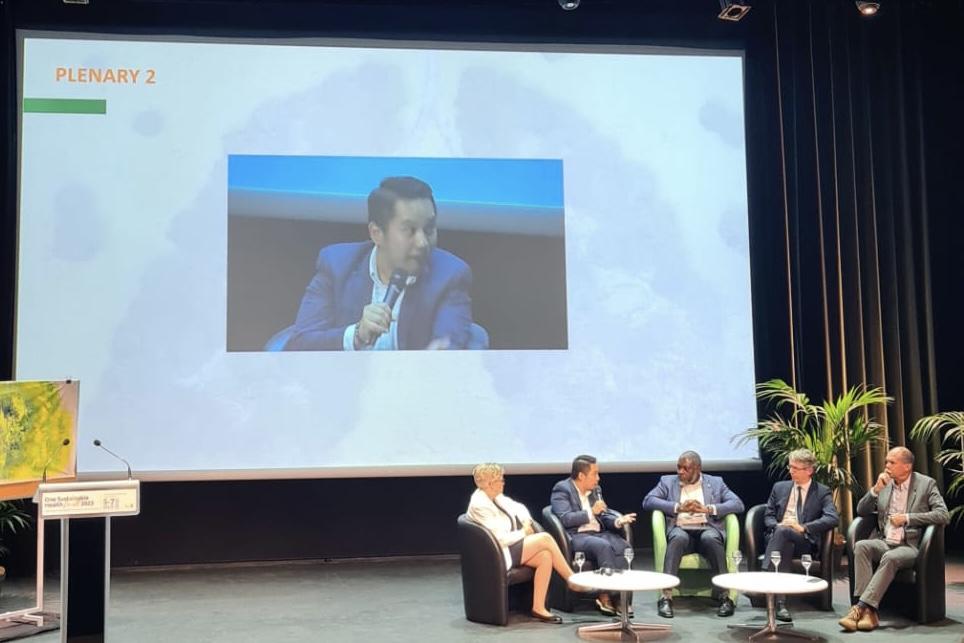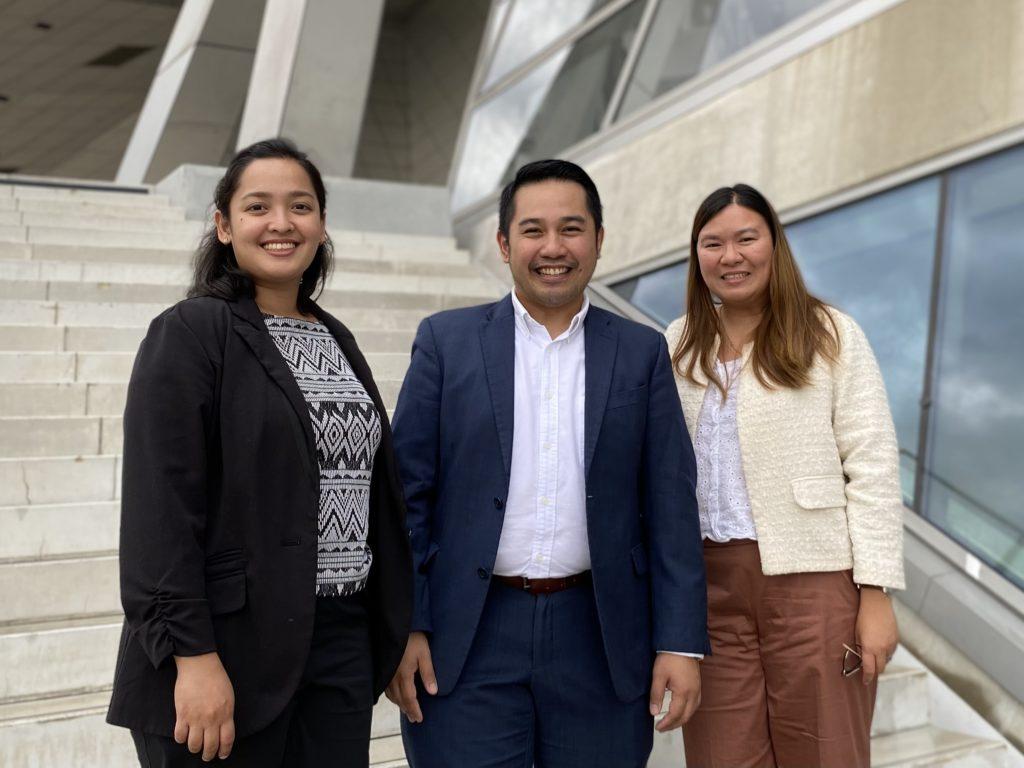
We are three Filipino planetary health advocates who had the privilege of participating in last week’s One Sustainable Health (OSH) for All Forum held in Lyon, France. In recent years, terms such as “Planetary Health” and “One Health” have become increasingly popular as part of the global health sector’s response to growing ecological threats to human health such as climate change, biodiversity loss, and environmental pollution. The organizers of this forum have introduced a new phrase – “One Sustainable Health for All” – to encompass these parallel discourses and interconnected issues; it can only be hoped that this new phrase helps put an end to, rather than complicates, the ongoing academic debate among already-existing terms. Nonetheless, as mentioned in the conference editorial, the OSH for All Forum aims “[to move] beyond the universal health coverage agenda” and towards building not just traditional health systems but “systems for health” such as the food, urban, and economic systems, among others.
The timing of the conference could not be any less portentous – the beginning of July was the hottest week on record, and the heat was as unbearable in Lyon as is usually the case in our home country located in the tropics. Ten thousand kilometers away, the Philippine government has officially declared the start of the El Niño phenomenon, exposing nearly 114 million citizens to scorching temperatures which can lead to more heat-related illnesses, and increasing the chance of dry spells and drought, which threaten our food security and nutrition.
The climate crisis and other related ecological threats are already taking a huge toll on human health worldwide; hence, urgent action cannot anymore be further delayed. The OSH Forum produced an outcome document that will be later published and presented during the World Health Summit in Berlin in October – unfortunately, we in global health do a lot of this conference hopping. Many of the recommendations are all too familiar – making OSH education available to all people, investing in OSH research, utilizing fiscal measures such as taxation, transforming the food system to become resilient and sustainable, centering local communities and Indigenous knowledge, among others. We have heard many of these in previous fora; the challenge is always in the translation from aspiration to reality.
Coming from the Philippines, we would like to share some insights and lessons drawing from our experience which can hopefully aid the operationalization of One Sustainable Health, especially in a way that centers the Global South, which hosts many of the world’s most vulnerable. As our homage to the host city of Lyon, we identified three L’s for OSH operationalization:
First, while the global diplomacy for financing and agenda setting is important, LOCAL action cannot be ignored and must be heavily supported and invested in. There is a tendency to romanticize the local – we often hear from international leaders that we must involve local communities in resilience building. In many countries, frameworks for local community engagement already exist – for instance in the Philippines, the Climate Change Act, which was once deemed by the United Nations as one of the world’s best climate laws, mandates the creation and implementation of local climate change action plans. However, resources are largely not available to aid operationalization, not to mention that local capacity is very limited as local stakeholders have to juggle numerous priorities, functions, and needs. For instance, we keep on expecting already-overburdened community health workers to be involved in new arenas such as climate adaptation when they are not even being compensated properly for their daily healthcare work in the first place. Global promises coming from high-level do-gooders and well-wishers about One Sustainable Health will only succeed if it is ensured that resources generated at the global level are channeled to local communities, grassroots organizations, and social entrepreneurs.
Second, LEARNING for One Sustainable Health must be multidirectional – knowledge does not come only from the Global North. In the spirit of “decolonizing global health,” we must dismantle old colonial systems of education and knowledge flow. Since the intersecting planetary crises are going to affect us all, the Global North can learn a lot from the Global South too – for instance, when it comes to dealing with extreme weather events. During the week of the conference, the Netherlands was hit by an unprecedented summer storm, catching citizens and communities by surprise, and resulting in massive transport and traffic delays, uprooted trees falling on buildings, and injuries as well as two deaths. Preparing and responding to extreme weather events such as storms is something our home, the Philippines – a country that is hit by nearly 20 typhoons each year – has for decades developed capacity for. Early this year, our institutions – the St. Luke’s Medical Center in the Philippines and UMC Utrecht in the Netherlands – brought together nearly 30 medical students from both countries inside a virtual classroom to learn together about shared planetary health challenges and co-design potential solutions that can also be tailored to the two countries’ different contexts. Multidirectional learning can foster alliances especially between Global South countries who share similar physical hazards and social issues.
Finally, One Sustainable Health requires LEADERSHIP at all levels and of a different kind. We often hear about new requirements for leadership in the era of polycrisis – navigating complexity, driving cross-sectoral collaboration, communicating effectively while fighting mis/disinformation, breaking silos and building synergies, among others. But the ingredient that unfortunately receives little emphasis is the ability to make difficult, unpopular yet transformative decisions – for instance, total phase-out of fossil fuels, dramatic reduction of meat consumption, and stopping the further encroachment of human beings into the few remaining untouched natural ecosystems that we have – which are vital for climate stability, biodiversity conservation, and the protection of other planetary boundaries to ensure that they remain within a safe and just range. Setting up strong accountability and transparency mechanisms for One Sustainable Health at all levels will help encourage this new kind of leadership that is not corrupt but consistent, committed, and courageous.
In closing, we call on the leaders of the One Sustainable Health community to be bolder in their decisions and to ensure that pledges made in Lyon turn into reality – hopefully much sooner because when it comes to the climate and biodiversity emergencies, time is running out. Moreover, the community and the conversations must be further expanded to ensure the inclusion of more voices from around the world, especially from the Global South, communities outside of Europe, and the world’s marginalized, such as Indigenous populations, farmers and fisherfolk, ordinary workers, and young people. From our end, we Filipinos who traveled to Lyon remain committed to continuing our meaningful engagement in the discourse, but also to focusing more on doing and not just talking, in order to set a positive example to the rest of the world and to keep the fire of hope ablaze.

The Filipinos at the One Sustainable Health for All Forum in Lyon